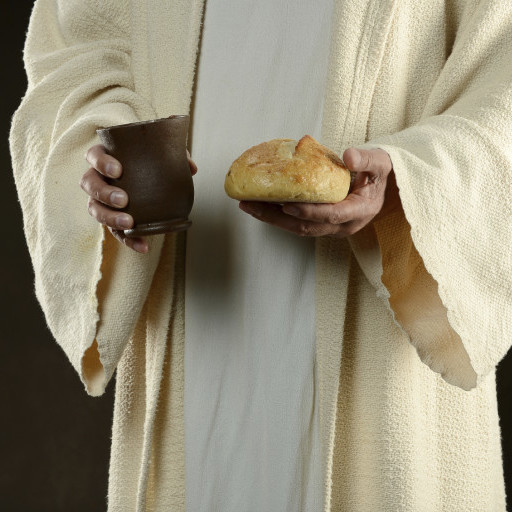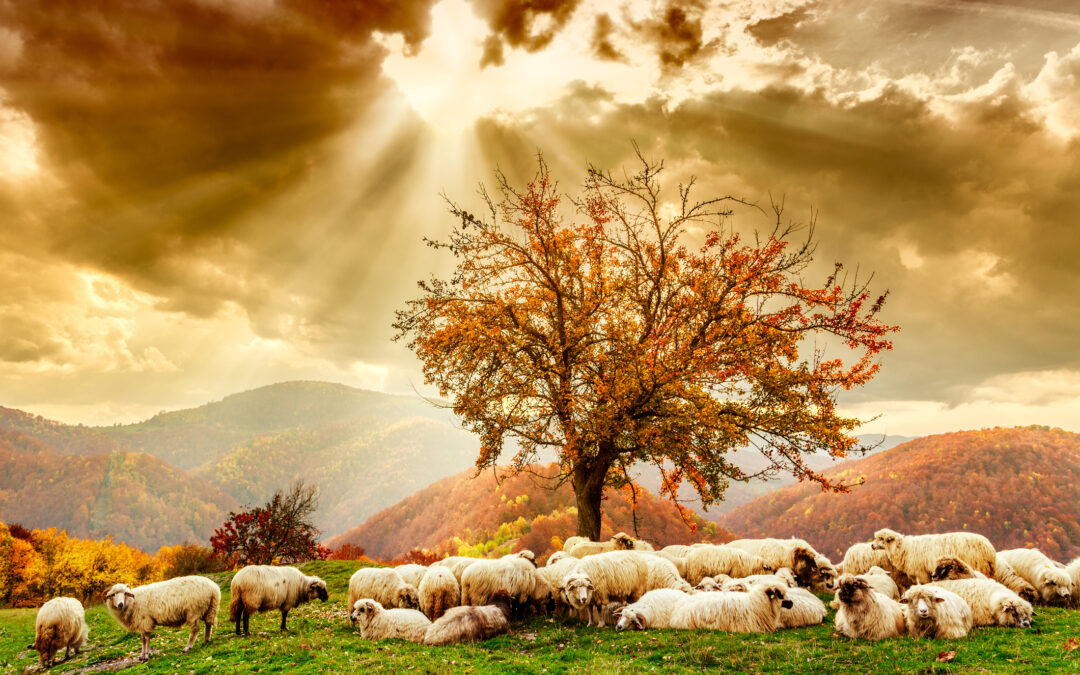When Israel followed the Lord, the gentle shepherd, no one went hungry. The laws of Moses had many provisions for the care of the poor.[i] When the leaders robbed the poor, they were breaking the law of Moses. Ruth, the Moabite maiden, was well taken care of with her widowed Jewish mother by these laws which were followed in her time.[ii] Ruth’s grandson became King David of Israel.
During a famine Elijah was commanded to go to the widow of Zarephath who was eating her last meal with her son. In return for her honoring the Lord’s servant and giving what little she had to him, she had a never-ending miraculous supply of oil and flour through the rest of the famine.[iii] From this we see that the Lord knows how to feed the poor, just like he fed the 5000.[iv] What the commandments teach us is how to be like Him, caring for the poor in His way and supporting them with His words of comfort.
The Psalmist said: “The earth is the Lord’s, and the fulness thereof; the world, and they that dwell therein.”[v] Later the Lord said:
“For the earth is full, and there is enough and to spare; yea, I prepared all things, and have given unto the children of men to be agents unto themselves. Therefore, if any man shall take of the abundance which I have made, and impart not his portion, according to the law of my gospel, unto the poor and the needy, he shall, with the wicked, lift up his eyes in hell, being in torment.”[vi] This reminds us of Jesus’ parable of Lazarus and the Rich Man whose roles are reversed in the next life, a warning by Jesus to all those who would rob and neglect the poor for personal gain.[vii]
In today’s bounteous world, with more than enough food produced per capita than necessary to feed the world, how is it that there are still hungry poor?[viii] The answer is the same as over the millenia, the rich and wicked leaders rob the poor.
“I shall not want” refers to more than a full stomach. In the Lord’s prayer it says “Give us this day our daily bread”[ix] which sounds like actual bread, but the Savior said:
“I am the bread of life: he that cometh to me shall never hunger; and he that believeth on me shall never thirst.”[x]
Clearly the Psalmist in Psalm 23 means more than lack of physical hunger. In the Beatitudes Jesus said:
“Blessed are they who hunger and thirst after righteousness, for they will be filled.” And later Jesus said in Samaria when the disciples brought food:
“In the mean while his disciples prayed him, saying, Master, eat. But he said unto them, I have meat to eat that ye know not of.”[xi]
The Lord God is able to provide for the poor both physically and spiritually, and as Jesus said “the poor you will always have with you.”[xii] But we are the ones who need to learn how to take care of them so that there is no hunger in the world.
[i] Exodus 22:22. 23:6, 11. Leviticus 19:10,15. 23:22,25,35,39,47-48. Deuteronomy 10:18. 14:28-29. 15:4,7,9,11. 24:14,17. 27:19. Numerous Psalms and references by the prophets of Israel remind Israel of their obligation to take care of the poor.
[ii] Ruth 2:17-23
[iii] 1 Kings 17:7-16
[iv] Matthew 14:13-21
[v] Psalm 24:1 KJV
[vi] D&C 104:17-18
[vii] Luke 16:19-31
[viii] https://www.ncbi.nlm.nih.gov/pmc/articles/PMC6198966/ “Currently, worldwide food production exceeds 2,750 kilocalories per person per day, which exceeds the amount required to feed the global population.” Published in 2018
[ix] Matthew 6:9-13
[x] John 6:35 KJV
[xi] John 4:31-32 KJV
[xii] Matthew 26:11 KJV

